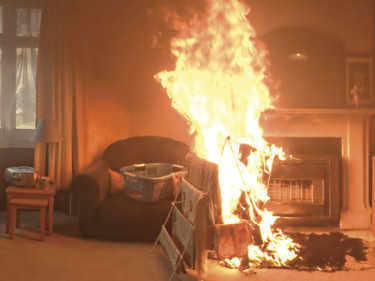Chances are, you've got dozens of appliances scattered around your home. Each of these devices carries a fire safety risk.
Here are some tips for using appliances safely.
Appliance
- Turn off appliances when not in use. If practical, unplug them at the wall as well.
- Keep all electrical appliances away from water.
- When buying second hand appliances, ensure they've been tested by a licensed electrician or gas fitter, and have been certified as safe.
- Do not place fans, heaters, televisions or other electrical equipment in areas without good airflow, as they may overheat.
- If you're worried about the conditions of any appliances (like electric blankets, heaters, air conditioners or fans), have them checked by a qualified electrician.
Leads and cords
- Don't overload multi-boards. At most, plug in one appliance per wall or multi-board socket.
- Never plug an adaptor or multi-board into another adaptor or multi-board.
- Make sure leads and cords are in good condition and not frayed.
- Never put extension cords under carpets or mats, and avoid using them while they are tightly coiled.
- Ensure furniture does not rest on top of electrical leads.
- Remember that extension cords are not designed to be permanent replacements to your home's internal wiring.
Laundry
- Remove lint from the clothes dryer filter after each use. Static electricity and build up of heat can cause dust, lint and chemical residue on clothing to catch fire.
- Ensure the dryer goes through the full cycle, including cool down, before you open it.
- Ensure there's proper ventilation and air space around the clothes dryer.
- Don't install a smoke alarm in your laundry as you might get false alarms. Try a heat alarm instead. For more information, take a look at our smoke alarm guide.
Want to make sure your home is fire safe? Use our fire safety checklist to find anything that might be putting you at risk.














